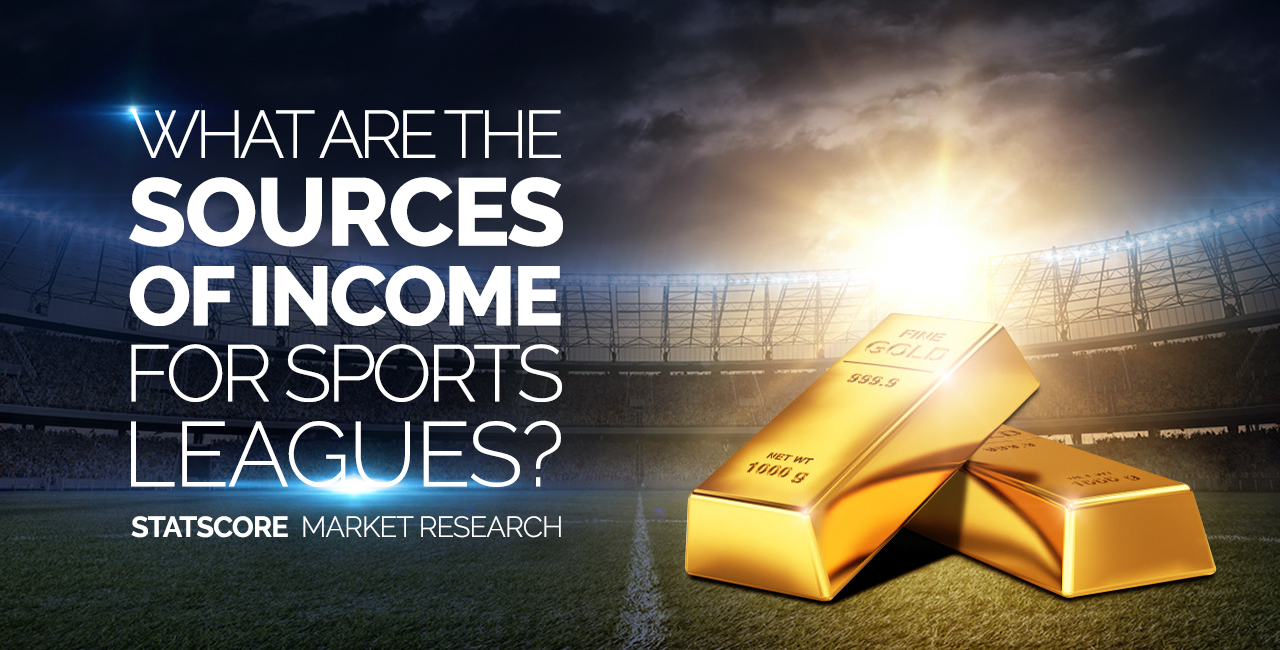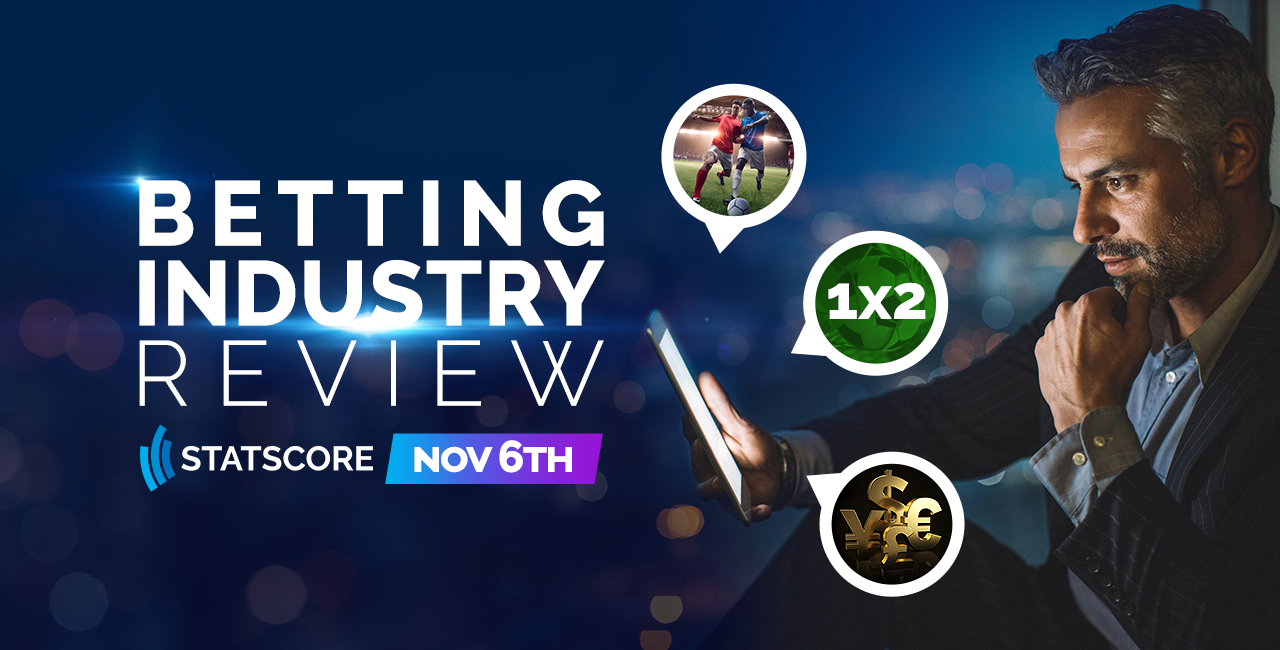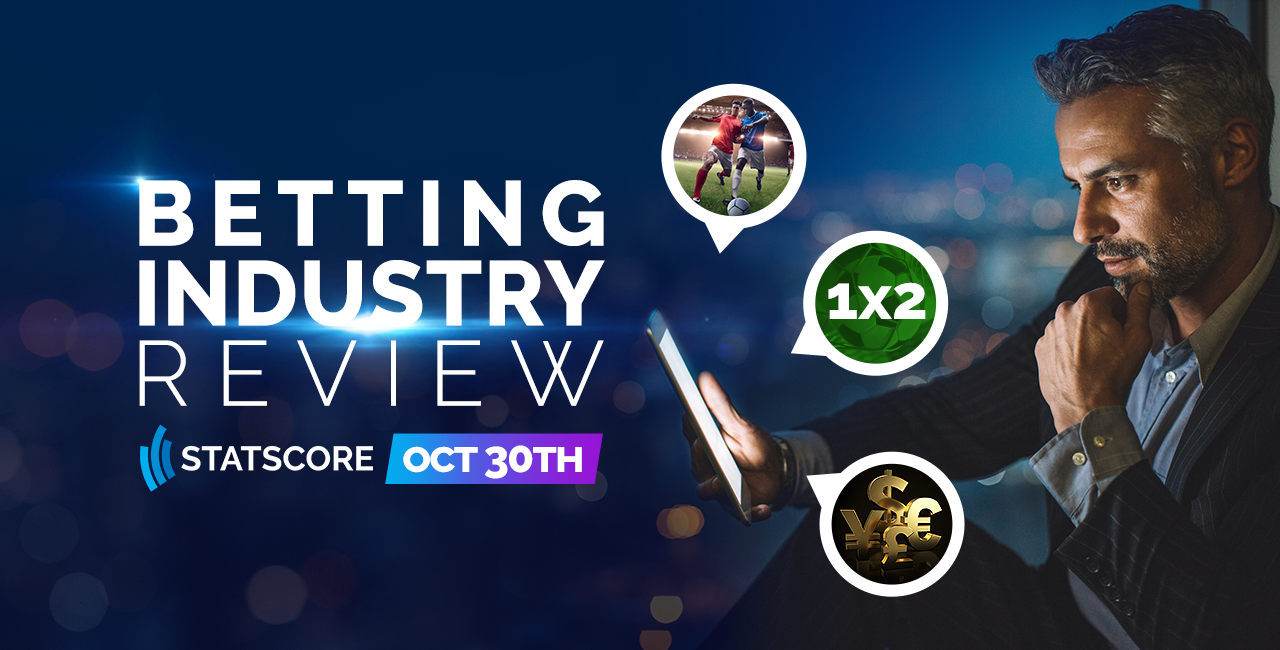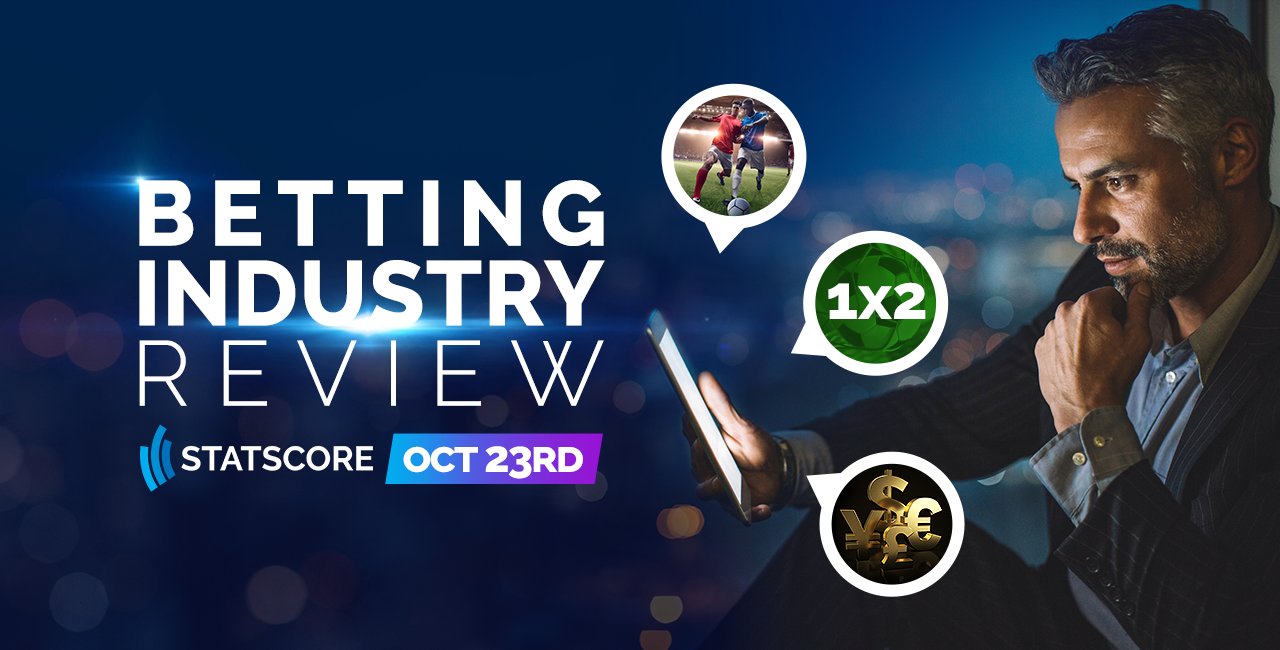Sport is, without a doubt, a huge business around the world, and the most successful sports leagues are able to generate incredibly high revenues. But where exactly does the money come from? Let’s learn more with STATSCORE!
How do sports leagues earn money?
With hundreds of millions of fans around the globe, top sports competitions and organizations are able to benefit from many sources of income.
Selling tickets to their games? Of course, that’s an important source of income for sports clubs (or at least it was one before the pandemic hit the world). Their matchday revenues also come from a range of products and services, including not just the tickers, but also food, drinks, and hospitality.
But the ways in which sports leagues earn money are much more complex.Let’s take a closer look to find out what’s most profitable!
-
TV broadcasting contracts
Watching sports on television has been the most popular form of following it. And with the COVID-19 pandemic and all the restrictions it caused – it might be getting even more important than ever (at least, if the competitions are not completely suspended).
Television is definitely the greatest driver in global sports revenues, as the most popular broadcast networks are eager to pay lots of money for TV sports contracts, which are more than likely to attract crowds of viewers.
In the US alone, media sports rights were estimated by SportBusiness’ Global Media Report to be worth $22.42 billion in 2019. The worldwide sports media rights are estimated to be worth around $50 billion.
TV rights form a lion’s share of income for all of the world’s top leagues, including, of course, the NFL ($4.52 bn in 2019, according to Statista), NBA ($3.12 bn), MLB ($1.65 bn), and the top soccer leagues (EPL: $3.83 bn, La Liga: $2.27 bn).
Sign up for our weekly newsletter and stay updated!
-
Merchandising and licensing deals
Wouldn’t you buy your team’s jersey, T-shirt, or a mug? Fans love to show off their loyalty to their teams, both in the stadiums and outside the venues. Their beloved clubs are often part of their identity and lifestyle. Sports leagues, federations and teams know very well how to capitalize on it!
Some people will probably buy any item branded with their team’s logo – from balls to banners and flags to pens and pencils. That’s why leagues keep selling rights to various companies allowing them to create and sell items representing the competition.
Official websites of sports leagues and clubs often have integrated e-commerce sections where fans can purchase all kinds of items branded with the appropriate logos and names.
According to Kenneth Research, worldwide licensed sports merchandise sales were worth $26.47 billion in 2018, and were predicted to reach almost $34 billion by 2023!
-
Sponsorship contracts
Displaying your company’s name or logo on sports uniforms may be one of the best ways of reaching a wider audience. That’s why it costs so much (of course, if we’re talking about top leagues and teams)!
We have already mentioned that people feel a deep affection to the clubs they follow. Now imagine that you can try to redirect some of these positive emotions from a sports entity to your brand by sponsoring it. Yeap, this could be it. People love to bet but when they have a choice: any bookmaker around or the special one that sponsors their club, the choice is easy.
In 2019, sports sponsorship deals around the world were worth $46.1bn. However, sports marketing agency Two Circles estimates that due to the COVID-19 pandemic, their value will fall to $28.9bn in 2020 (37% year-on-year decrease).
Moreover, the world’s most successful leagues and clubs are engaging in global commercial partnerships with various brands. Premier League, for example, has its official snack, soft drink, beer, and an official bank. The NBA has partnered up with Yahoo Sports as the league’s official marketing partner, with the two entities collaborating on a range of fantasy sports and betting activities, which also generate profits for the league.
-
Official sports data
Who has the data, has the power – and this applies to sports data too! Official sports data empowers leagues and sports federations by giving them full control over their data and the ways in which it is used.
Sports leagues are creating – through their teams and players – something that is then used by other companies, such as bookmakers or media outlets, to their profit. What are they creating? Of course, it’s the data – match results, statistics, outcomes… So, why shouldn’t they earn on it?

In fact, many of them are already profiting by selling their official data, which is compiled by specialized providers, such as STATSCORE!
Learn more about official sports data!
What are the effects of controlling the data? It boosts financial profits by offering access to the data to media outlets, broadcasters, and betting businesses. It increases the marketing value of the league, which attracts new sponsors and partners… And that’s not all!
Find out more!
Learn more about how STATSCORE supports sports organisations. Drop us a message at cst@statscore.com or let’s talk on LiveChat!
Sign up for our weekly BETTING INDUSTRY REVIEW to stay updated with the latest trends and key developments in the world of sports data and betting. You can do it by filling the form below.
PROCESSING OF THE DATA
Pursuant to Article 13.1–13.2 of Regulation (EU) 2016/679 of the European Parliament and of the Council of 27 April 2016 on the protection of natural persons with regard to the processing of personal data and on the free movement of such data, and repealing Directive 95/46/EC (“GDPR”), we would like to inform you as follows:
1) STATSCORE Sp. z o.o. with its registered office in Katowice 40-012 at ul. Dworcowa 2 is the controller of your personal data.
2) Your personal data will be processed for the purposes of the product trial process – in accordance with Article 6.1(a)–(b) of the GDPR.
3) Furnishing the personal data requested by STATSCORE about yourself is voluntary.
4) Your personal data will be retained for the duration of the Product development term but for no less than the retention period required under the law.
5) Your personal data will not be subject to automated decision-making or profiling.
6) You have the right to access the personal data held about you and to have your data rectified or erased or to restrict or to object to the processing as well as the right to data portability. If your personal data is processed under Article 6.1(a) of the GDPR (i.e. processed on the basis of the consent you have given to the processing), you may withdraw your consent at any time without any impact on the lawfulness of the processing carried out before your consent was withdrawn.
7) You may lodge a complaint in respect of the processing of the above data to the President of the Office for Personal Data Protection (PUODO).





